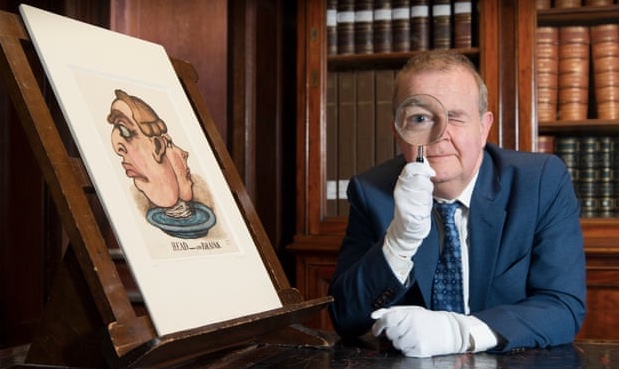by Clare Pettitt, Professor of Nineteenth Century Literature and Culture, Department of English
“Dissent clearly varies in terms of seriousness”, says Ian Hislop, the guest curator of the British Museum’s new exhibition. It certainly does. I Object: Ian Hislop’s search for dissent throws together a peculiarly Hislopian blend of public school scatological gags and objects and images that record acts of resistance under totalitarian regimes that may have resulted in the torture and/or death of their makers. The stakes are vertiginously uneven, and as a result, the exhibition frequently runs into problems of tone.
As curator, we encounter a thoughtful and knowledgeable Hislop, respectful of other cultures and alert to injustice and cruelty in the world. But as presenter, we encounter more of a fnarr fnarr chortler: “Gillray knew what would sell a print – sex, the royal family and fashionable shoes”, he chuckles, or “Have workmen on building sites always been keen on sexual commentary?” It is an interesting problem. Amnesty International meets Finbarr Saunders meets the British Museum, and the result is often confusing, but never boring.


